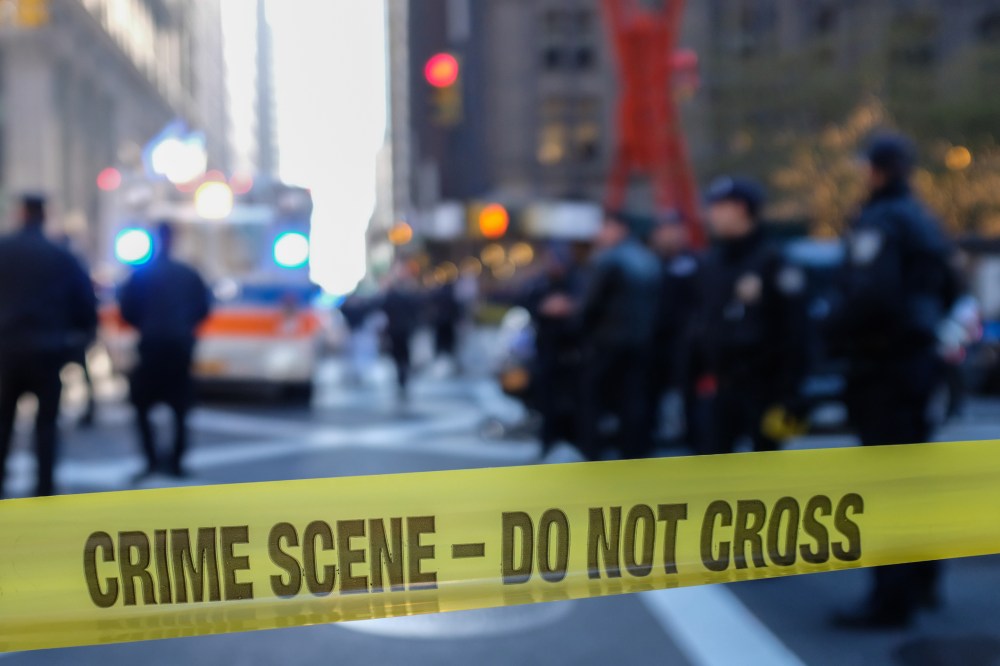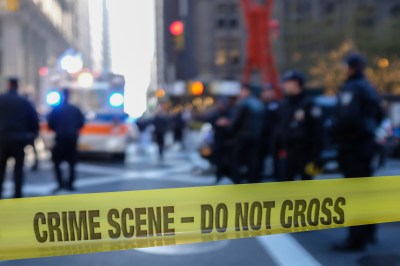Hi,
I’m gonna think out loud about racism and crime. I’m quite comfortable saying both are bad. Indeed, I’m just going to assert that without further explanation or justification. Those are my priors.
That said, a lot of racist stuff boils down to non-criminal expression. And the stuff that’s not expression is often also criminal. For instance, the crimes of murder, battery, and vandalism are all very bad when they are motivated by racism. But—not to belabor the obvious—they are also very bad when the motivation isn’t racism. Reasonable people can argue about how much worse racially motivated criminal acts are than non-racially motivated criminal acts.
For example, for various reasons, I do believe that racially motivated police brutality is worse than run-of-the-mill police brutality, because there is something especially heinous and damaging to the social fabric and social contract when agents of the state single out specific groups for abuse. But that doesn’t mean I’m in favor of “colorblind” police brutality.
In other words, I don’t think reasonable people can reasonably argue that absent racist motivations, criminal acts aren’t bad. Even if you think racially motivated murder is worse than murder-for-hire—or murdering someone out of jealousy, greed, or whatever—saying something like, “Murdering that old lady to get her Social Security check is okay because there was no racist intent” is rightly unacceptable.
Likewise, I don’t think the exercise of legitimate police power becomes any less legitimate when the criminal isn’t white. Murder is equally unacceptable, regardless of the skin color of the perpetrator or the victim.
By the way, I’m just using murder as a stand-in for crime generally. The above logic applies to beating people up, robbery, rape, looting, car theft, etc.
The reason I bring all of this up is that we live in an age where a lot of people explicitly or implicitly argue for a legal and social policy of “zero tolerance” for racism but not for crime. Google “zero tolerance for racism” and you’ll find that everyone from Uber to the United Nations insists that’s their policy. Google “zero tolerance for crime” and you’ll still get plenty of results, but they’ll have much less of a virtue-signaling feel to them.
Instead, you’ll find lots of stuff from academics and policy wonks explaining that a zero-tolerance policy for crime is hopeless, naïve, and—if it has a disparate impact on minorities—racist (particularly when it comes to “order maintenance” in schools).
Now, while I’m open to many possible exceptions to the rule, I still think this is wrong. At the level of first principles, I think that when you criminalize something, it should be a crime for everybody, regardless of the statistical consequences. Again, I think nearly everybody agrees with this in the abstract when it comes to things like murder, even if they suspend their beliefs when it comes to certain specific murderers (O.J. Simpson, Vladimir Putin, Sacco and Vanzetti, etc.). Things get murkier when it comes to rioting, looting, shoplifting, and other crimes that fall into various “root causes” and “social justice” pieties and narratives.
And I think that’s nuts.
Again, I think racism is very bad. But policing peoples’ thoughts is very hard and there’s ample evidence that the effort to police racism to extinction can actually lead to more racism. Also, what constitutes racism is often a moving target, as the people who make a living off of fighting racism have strong incentives to find more and more of it.
It’s a little like the U.S. poverty rate. In 1973, about 11.1 percent of Americans were at or below the poverty line. Today the number is 11.6 percent. Now, the truth is today’s poor are, generally speaking, a lot less poor than they were in 1973. But the definition of poverty is a moving target. And in one sense, that’s fine. The richer we get, the richer our poor people should be, too. If we went by the definition of poverty in, say, 1923, we’d have precious few poor people. Looked at another way, the average middle class person a century ago—no car, no phone, no air conditioning, etc.—would look pretty poor today. Poverty, like racism, is very often a profoundly subjective measure. And the people in the “fighting poverty” business depend on that subjective standard to, well, stay in business.
There’s a lot of subjectivity to crime, too. Lots of things were considered criminal 100 years ago that aren’t considered crimes today. But the nice thing about criminal law is that we change the laws to reflect changing attitudes. Horse theft and barn burning are still crimes, but no one thinks they should be capital offenses the way they once were. Other former criminal offenses—homosexual acts, interracial or same-sex marriage, blasphemy, etc.—aren’t crimes at all anymore. And while a handful of folks might like to change that, the vast majority of Americans are fine with it.
But most Americans are not fine with things like murder, rape, robbery, and theft. That’s why we call these things “crimes” and not “lifestyle choices.” You can tell this is the case in all sorts of ways. One way is to talk to almost any American who isn’t a professor of sociology and ask them. Another way is to listen to people who are, to use a pejorative but not entirely inaccurate term, “soft on crime.” They will talk a lot about the problems of incarceration, root causes, and disparate impact, which have downstream policy consequences that amount to being soft on crime. But you’ll never hear even the most progressive prosecutors or politicians say, “We need to stop prosecuting murderers,” or, “We need to allow more rapes.” Even Alvin Bragg brags about prosecuting murderers and rapists as he shrouds his soft-on-crime policies in euphemisms.
When I talk about how much less racist America is today than in any previous generation, some people will say that’s not true. The racism is just more hidden or subtle. I think that’s wrong. Racism might be more “hidden” or “subtle” today, but that’s just another way of saying there’s less of it. When we had Jim Crow, racism wasn’t subtle or hidden, it was right there in front of you.
Another response is, “So what? Any racism is unacceptable.” And on one level I think that’s a fine response. But when racism retreats from the public square to people’s minds—with few opportunities for socially approved, never mind legal, expression—it’s pretty hard to do much about it. And like poverty, it’s simply unacceptable for activists to sound like they’re declaring victory. The struggle must be eternal.
But when people say crime is out of control, many of those same folks leap to their keyboards or microphones to insist that crime was much worse in previous generations. In some cases, they’re right. New York City was more dangerous when I was growing up than it is today, by many metrics. But it’s also much more dangerous than it was five years ago.
Now it’s my turn to ask, “So what?”
While examples of racism become increasingly literary, abstract, and symbolic—using once-acceptable but now forbidden words, not being “inclusive” enough, refusing to parrot various social justice slogans—the examples of violent crime are the same as they ever were. If you have your car stolen at gunpoint—an increasingly common crime where I live—why should I care if someone says, “Things like this used to happen more often 40 years ago”?
In other words, our definitions of racism have “evolved” while attitudes about crime among the people obsessed with racism have devolved.
I do think that many on the right have exaggerated the problem with crime. But for all the dunking on Fox or the New York Post, it’s very weird to treat very real crimes as simply a media story. Should we wait until the homicide rate is worse than it was in 1990 before we can talk about it being a problem without being accused of falsely “hyping a narrative” or the “perception of fear”? Democrats who worry about the crime issue could help themselves a lot more by dropping the media criticism and simply unambiguously fighting crime. It tells you something about the political demands of their base that clarity is not a priority.
The state’s obligation to protect citizens from violence and theft is eternal and unchanging, regardless of the statistics. It’s quite literally what governments are for. By all means fight racism. But if forced to choose, the choice is easy. Fight crime first. If taking our eye off the ball leads to more racism that then bleeds into actual racist violence, fight that too. Heck, fight that harder than other forms of violence if you think that’s necessary. But fighting violence is the state’s first priority, now and always. And while we’ll never eradicate violent crime, we should always have zero tolerance for it.







Please note that we at The Dispatch hold ourselves, our work, and our commenters to a higher standard than other places on the internet. We welcome comments that foster genuine debate or discussion—including comments critical of us or our work—but responses that include ad hominem attacks on fellow Dispatch members or are intended to stoke fear and anger may be moderated.
With your membership, you only have the ability to comment on The Morning Dispatch articles. Consider upgrading to join the conversation everywhere.